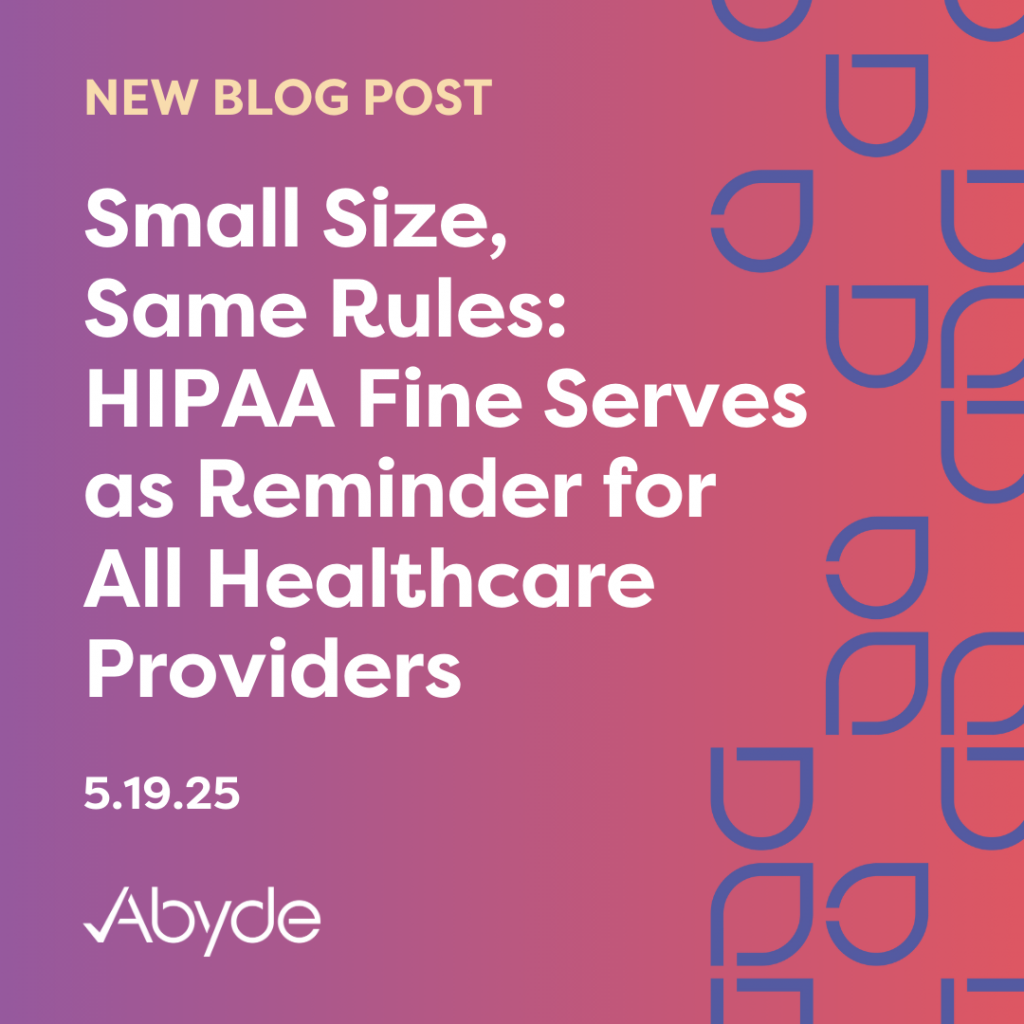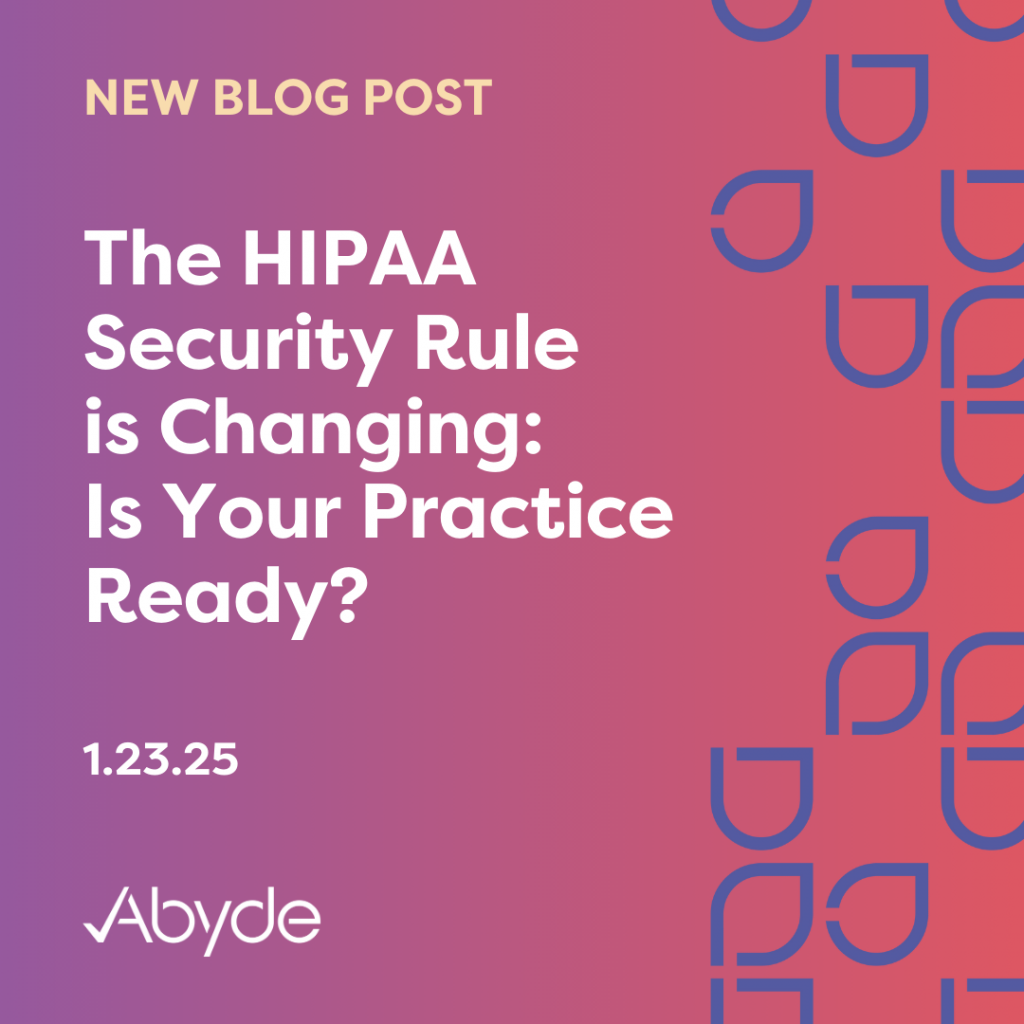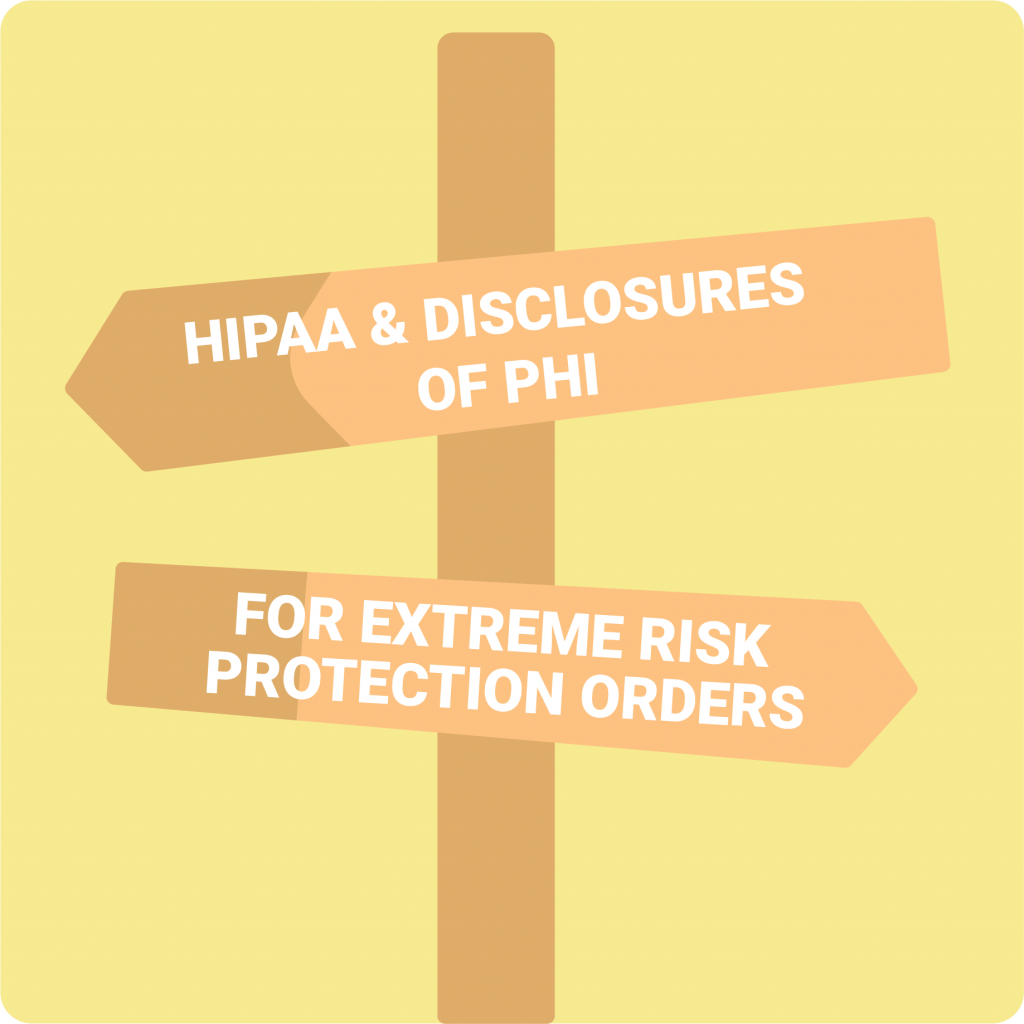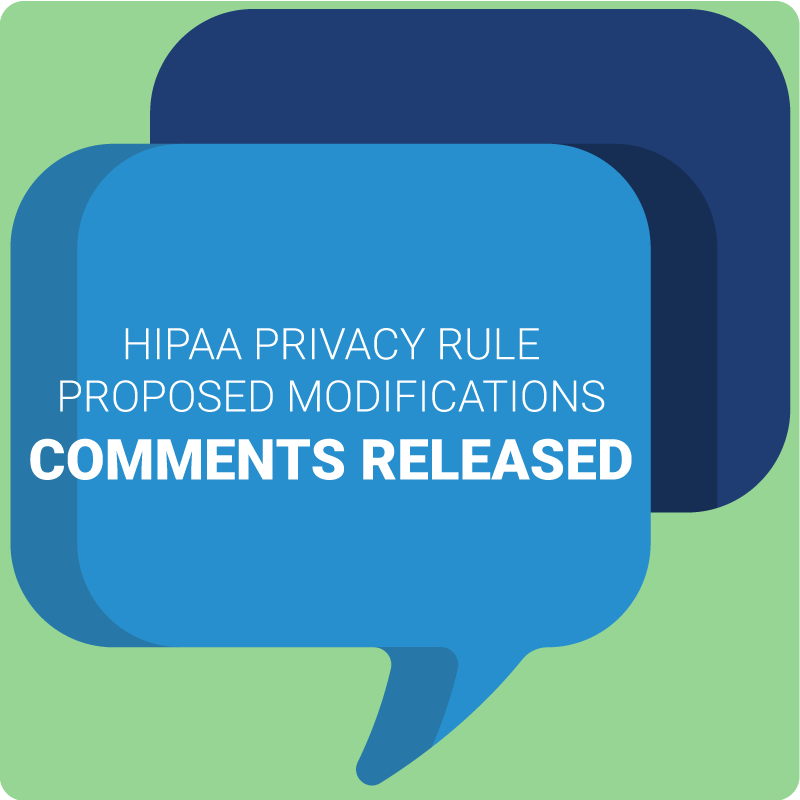May 19, 2025 HIPAA compliance is not just a recommendation; it’s a requirement, no matter how small your organization is. The latest HIPAA fine is a testament to this, with Vision Upright MRI the latest practice to be penalized. The small California MRI center experienced a significant breach, which exposed several violations in the fallout. Acting Office for Civil Rights (OCR) Director Anthony Archeval emphasized the widespread cybersecurity risks, noting that these threats impact healthcare providers of all sizes: “Cybersecurity threats affect large and small covered healthcare providers.” Vision Upright MRI was fined $5,000 and will now face a two-year Corrective Action Plan (CAP), being monitored by the OCR. This fine showcases that no practice, big or small, must be followed to keep patient data safe. What Happened? At the end of 2020, Vision Upright MRI experienced a breach in its systems due to an insecure server. This cybercrime exposed over 21,000 patients’ medical images, leading to the OCR’s investigation. The investigation discovered that the MRI center had never completed a Security Risk Analysis (SRA). The SRA thoroughly examines a practice, reviewing all current safeguards to secure Protected Health Information (PHI). These safeguards can include physical barriers the practice has implemented, like locked doors and alarms, and the administrative techniques the practice follows, like routinely checking access to sensitive patient data. The SRA is critical for a compliant practice and should be completed annually and after any breaches. While the SRA is a fundamental requirement for a practice, it is unfortunately often overlooked. The OCR has implemented a Risk Analysis Initiative to ensure practices are completing this requirement, and has reinstated the audit program, reviewing if regulated entities are maintaining this document. In addition to missing the SRA, Vision Upright MRI did not properly notify affected parties within 60 days, violating the Breach Notification Rule. The Breach Notification Rule requires practices to notify patients within 60 days of discovering a breach, regardless of how many were impacted. This short timeline allows patients to take the necessary precautions for the safety of their data. The practice should also provide credit monitoring. Since this event impacted well over 500 patients, the threshold to consider the situation a large breach, Vision Upright MRI also needed to notify the media and the OCR within a 60-day timeline. Communicating this is imperative, allowing the OCR to swiftly begin its investigation and potentially affected patients to receive information through media channels. These serious missteps led to the monetary settlement and years of government monitoring. Streamlining HIPAA Compliance Even a small practice doesn’t require overwhelming resources to be HIPAA compliant. The right compliance program can simplify HIPAA compliance. With smart solutions, the SRA can be completed easily, reviewing questions and potential vulnerabilities the practice faces. Additionally, breaches can be reported in intelligent software, with compliance experts assisting practices through alerting patients and the OCR. Meet with an expert today to learn how to automate your compliance program.
The HIPAA Security Rule is Changing: Is Your Practice Ready?
January 23, 2025 The HIPAA Security Rule went into effect in 2003, and it’s an understatement to say that technology has changed quite a bit since then. The Office for Civil Rights has released proposed updates for the HIPAA Security Rule. After a historic year of breaches, this legislation comprehensively strengthens the current Rule. This is the first update of the legislation in a decade. Many of the new requirements simply reinforce existing recommendations within the Security Rule, which now makes best practices mandatory. This legislation is the result of the significant rise in cyber attacks and the OCR’s continuous noncompliant findings when investigating Covered Entities and Business Associates. Although the proposed rule has not yet been finalized, legislation will likely be enacted within the next year, given bipartisan support for protecting patient data. What is the HIPAA Security Rule? The Security Rule, a critical component of HIPAA, centers on stringent guidelines for managing electronic Protected Health Information (ePHI). These guidelines encompass a wide range of safeguards—including physical, administrative, and technical—all designed to ensure the protection of sensitive patient data. One of the most significant components of the Security Rule is completing a Security Risk Analysis (SRA). The SRA sets a benchmark for your practice and assesses what your practice currently does to protect patient data. This analysis includes safeguards ranging from physical measures, like door alarms, to technical precautions, like properly encrypting files. This analysis is a yearly procedure for the OCR and continues to be emphasized in this proposal. In this new proposal, the OCR strictly defines the SRA as a yearly requirement with more guidelines on specific questions. The OCR has introduced eight implementation specifications for risk analysis. This also includes a thorough analysis of potential natural disasters and the consequences if a Business Associate was breached. In fact, the government has introduced a Risk Analysis Initiative, fining practices and businesses that do not complete this analysis. While this assessment is a major component of this rule, once vulnerabilities are identified, it’s up to your practice to implement these safeguards to protect your patients. What’s Changing? This proposed rule mandates that Covered Entities and their Business Associates implement certain proactive measures that were previously only strongly recommended, such as multi-factor authentication. As technology has greatly advanced since the introduction of this rule, there are also more requirements focused on system management, including required anti-malware protection, disabling unused network ports, and a network map, highlighting what devices are connected to specific networks in an organization. Network segmentation is another advancement of the rule, requiring practices to use different networks based on access to specific information. New policies and procedures will also be required if this proposal goes into effect. For instance, contingency plans will be required, showing what a practice or business plans to do if it is breached within 72 hours. Additionally, practices need to have a transition plan when staff leaves, and they need to notify other regulated entities when a staff member’s access to ePHI is changed or terminated. Business Associates (BAs) will also face stricter requirements when working with Covered Entities. If breached, BAs must notify their Covered Entities within 24 hours. BAs will also now have to have their compliance program certified by a Subject Matter Expert in cybersecurity on a yearly basis, ensuring that the business is taking the right steps to protect patient data. What Can I Do? While this rule is still within its comment period until early March, it could be enacted this year. Being aware of upcoming HIPAA legislation and preparing your practice is vital. Working with a smart compliance solution can take the pressure off, with compliance experts updating their systems to ensure their users will be compliant with new laws. Looking to understand HIPAA compliance for your practice before new laws take effect? Schedule a consultation with one of our experts today.
HHS Announces New Divisions Within the OCR
March 14, 2023 EXTRA EXTRA READ ALL ABOUT IT!! The U.S. Department of Health and Human Services, through the Office for Civil Rights (OCR), announced the formation of a new Enforcement Division, Policy Division, and Strategic Planning Division. Why isn’t this front-page news? And why did the HHS need to form three new divisions? “OCR’s caseload has multiplied in recent years, increasing to over 51,000 complaints in 2022– an increase of 69 percent between 2017 and 2022,” said OCR Director Melanie Fontes Rainer. “…reorganization improves OCR’s ability to effectively respond to complaints, puts OCR in line with its peers’ structure, and moves OCR into the future.” The OCR will now reflect the structure set by the U.S. Department of Education’s Office for Civil Rights. The Strategic Planning Division will not only work to coordinate public outreach to protect civil rights and health information privacy. They will also expand data analytics and coordinate data collection across HHS leadership. With the OCR being proactive and educating the public on their rights, now would be the time to make sure you are being proactive with HIPAA. What is something to make sure you are staying compliant and one step ahead of the OCR? How about your Security Risk Analysis or the “Crown Jewel” of the OCR as we like to call it. It’s the first thing the OCR asks for when they come knockin’. So why not beat them to the punch? You’ll identify and assess potential threats and vulnerabilities to protected health information (PHI), as well as evaluate the effectiveness of the organization’s security measures and policies. A HIPAA Security Risk Analysis is an ongoing process that must be regularly reviewed and updated to ensure that the organization remains in compliance. Guess what, here at Abyde we automate the entire process for you. Extra, extra, HIPAA violations can result in severe consequences, including fines, legal action, and damage to a healthcare organization’s reputation. Therefore, it is critical for healthcare providers and organizations to prioritize HIPAA compliance and regularly review and update their policies and procedures to ensure they are in line with the latest regulations.
The Department of Health and Human Services Appoints Melanie Fontes Rainer as the New Office for Civil Rights Director
September 19, 2022 Did you check the news??? There’s a new sheriff in town and her name is Melanie Fontes Rainer! Recently announced, the Department of Health and Human Services (HHS) has appointed former Acting Director, Melanie Fontes Rainer, as the new Director of the Office for Civil Rights (OCR). Fontes Rainer has extensive experience in her career, serving as an Acting Director for the OCR and before that Counselor to Secretary Becerra. Secretary Becerra stated, “Melanie has devoted her entire professional career to public service and has worked tirelessly to ensure that health care is accessible, affordable, and available to all, no matter where you live or who you are.” Fontes Rainer brings over 10 years of experience in civil rights, healthcare policy, and patient privacy. She was also involved in the 21st Century Cures Act, the Affordable Care Act, and the No Suprise Act. Fontes Rainer took part in ground-breaking settlements and created the first office that focused on health care rights and access in California. Melanie’s background, combined with her passion, will prepare her for the challenges she will face in her new role as OCR Director. It is important to take into account that after Lisa J. Pino, former OCR Director, was appointed last year, we saw a surge in enforcement cases right away. Only a few months into Pino’s appointment as director, the OCR announced five Right of Access settlements in one day. This year we have already seen 17 including a record-breaking day with 11 settlements announced in just one day alone. With settlements totaling $1,992,140 already in 2022, the OCR clearly isn’t done yet. As we can see, between HIPAA violations, cybersecurity issues, and personal information privacy, practices continue to face challenges this year. But we can also see that Fontes Rainer is here to help, bringing years of expertise and fiery passion to the table. She enforces healthcare regulations, promotes healthy practice operations, and protects patient health information across the country. With years of dedication to civil rights and medical privacy, we can definitely expect to see a lot of settlements surfacing with Fontes Rainer in town.
OCR Announces Eleven More HIPAA Right of Access Settlements
July 18, 2022 Waking up every morning is an eye-opening experience. Do you know what else is an eye-opening experience? Waking up to see all of the enforcement investigations the OCR launched against practices like yours. The U.S. Department of Health and Human Services (HHS) Office for Civil Rights (OCR) announced the completion of eleven investigations in its Health Insurance Portability and Accountability Act (HIPAA) Right of Access Initiative. Under the HIPAA Privacy Rule, the OCR launched this effort to assist individuals’ right to timely access to their health records at a reasonable cost. HIPAA provides individuals with the right to view and get copies of their health information from their healthcare providers and health plans. A HIPAA-regulated entity has 30 days after receiving a request to provide an individual or their representative with their records in a timely manner. OCR Director, Lisa J. Pino, states, “Health care organizations should take note that there are now 38 enforcement actions in our Right of Access Initiative and understand that OCR is serious about upholding the law and peoples’ fundamental right to timely access to their medical records.” Practices are no longer sneaking under the radar! The Office for Civil Rights (OCR) just concluded its thirty-eighth enforcement action since the HIPAA Right of Access Initiative began in 2019. Totaling over $646,000 across eleven penalties, the announcement of the verdicts includes eleven cases. Here is a brief breakdown of a couple of the cases just released by HHS: The first dental action includes a $5,000 settlement for failure to comply with the Right of Access provision stating covered entities must permit individuals to inspect and obtain a copy of their PHI. An eye care practice made the mistake of not providing a copy of a patient’s medical records until three days after the OCR investigated. Now that is crazy! To settle a potential violation of the HIPAA Privacy Rule right of access standard, the practice agreed to take corrective actions and pay $22,500. Something as simple as not giving your patients access to their data quickly enough can result in a huge fine! One not-for-profit health system learned the hard way by not responding timely enough to a complainant’s access request. This cost the health system a whopping $240,000! So, whether it’s responding to a request or delivering that request on time, you need to make sure your practice is on point to avoid these heavy penalties. As we can see the queen bee (Lisa Pino) isn’t joking around on pushing the OCR’s HIPAA Right of Access Initiative across practices, we encourage you to ensure you have the right HIPAA compliance measures in place. So what’s the holdup? For less than a scratch-off ticket a day you can save your practice from those sneaky fines and become friends with Abyde today!
MORE MONEY, MORE PROBLEMS? OCR Budget Proposal Will Result in Greater Enforcement and More Fines
May 16, 2022 If you think the Department of Health and Human Services (HHS) Office for Civil Rights (OCR) isn’t zeroed in on compliance, think again. OCR recently announced its request for a 55% increase in its overall funding, for a total of $60.2 million for the 2023 fiscal year. While this number may seem shocking, their plans for the money may make your jaw drop. Let’s take a look at why the increase is needed. Nearly 46,000 complaints were received in FY 2021, a dramatic increase from nearly 2,000 in 2003. Just this year, they’re expecting more than 28,000 related strictly to HIPAA. OCR states, “given the trend in complaints to OCR as well as the priorities articulated by the Administration, OCR anticipates a significant increase in the number of civil rights, information breaches, and cybersecurity complaints.” OCR opens an investigation for any breach that affects more than 500 people. In 2021, there were 714 of those instances, more than 30% growth over the last two years. Currently, OCR is limited to how many of these they can conduct a full investigation on. Imagine how powerful this could be if granted the resources to execute the necessary amount?! In addition, OCR is looking to add more regional investigators to address the backlog of existing complaints. With a goal of clearing the backlog by FY 2026, $8 million will be allocated to address the existing complaint inventory. OCR supports adding new regional investigators to “resolve new civil rights and HIPAA cases, address the backlog of complaints, and initiate compliance reviews in the Administration’s priority areas.” With a staff of 77 in 2020, they plan to add an additional 37 investigators and supervisory investigators in FY 2023. The budget accounts for a total increase of 64%, equating to 91 new employees. More staff could mean more knocks on your door! Still think that you’re the one that got (or will get) away?! This next bit is for you. Increasing fines and the institution of injunctive relief are more immediate than 2023. Not sure what a HIPAA violation could cost you? Don’t go get a tattoo of these any time soon – OCR is requesting increases based on a federal court evaluation. In 2019, then-OCR Director Roger Severino published a “notice of enforcement discretion” complementing the HITECH Act basing violation amounts on the party’s awareness and fault. While you could imagine this leaves some room for interpretation, the tiered fine structure will remain in place. Changing lanes, Injunctive relief essentially restrains a party from a certain action. OCR regulator, Adam Greene openly notes the HITECH Act “provides attorneys general with authority to seek injunctive relief.” Green continues to state, “If OCR were given authority to obtain injunctive relief, then it could require entities to take or discontinue actions –such as by requiring an entity to provide an individual with access to records or to discontinue a use or disclosure of protected health information – rather than only being able to penalize the entity after an act or omission occurs.” If you still aren’t convinced that OCR means business, let’s wrap up with a summary of what their request for extra dollar signs means for you. An increase in budget simply equates to an increase in resources – more employees to not only attack the existing backlog but the ability to complete more in-depth and frequent investigations. Higher fines and more meaningful corrective action plans mean greater penalties and violation costs. We hope you take your compliance seriously, OCR certainly is! Let us navigate these upcoming changes with you – from our simple software to our readily available education, we will be your companion in confidence that you are set up for any OCR changes that come our way.
HHS Issues Guidance on HIPAA Disclosures for Extreme Risk Protection Orders
December 20, 2021 To combat HIPAA’s common misconception of acting as a barrier law, the Department of Health and Human Services (HHS) along with the Office for Civil Rights (OCR) has continued to emphasize that the law does not simply prohibit PHI disclosure altogether but rather permits the safe sharing of relevant information when necessary. While we’ve recently seen information published in response to HIPAA’s role in a public health emergency and disclosure of vaccination status – just today the government issued guidance addressing another widely important concern. The latest announcement helps clarify how the HIPAA Privacy Rule permits covered health care providers to disclose protected health information (PHI) for the purpose of extreme risk protection orders (ERPO) and to prevent an individual in crisis from accessing firearms. This guidance follows suit with the U.S. Department of Justice’s model extreme risk protection order legislation and aims to support law enforcement, family members and others who intervene in an effort to prevent firearm injuries and deaths. The issued guidance speaks to HIPAA’s requirements in relation to ERPO laws, stating that the Privacy Rule does allow a health care provider to disclose PHI in support of an application for an ERPO against an individual in limited circumstances. HIPAA allows entities to share an individual’s PHI without authorization if they feel that the individual poses a danger to themselves or others, if the disclosure is required by law, or when the disclosure is in response to an order of a court or other lawful process. It details specific examples for each permission along with general considerations for meeting the Privacy Rule’s “minimum necessary” standard. This standard requires covered entities and business associates to make reasonable efforts to limit the PHI disclosed to the minimum necessary to accomplish the intended purpose of the use or request. In response to the issued notice, recently appointed OCR Director, Lisa J. Pino states that, “HIPAA should not be a barrier to communication for law enforcement, concerned family members, health care providers, and others when they see an individual in crisis. Today’s guidance helps clarify legal requirements and to better support individuals in crisis.” This guidance is essential in not only improving the public’s safety but clarifying any confusion that could get in the way of doing that. “Too often, communities bear the weight of heartbreaking tragedies caused by the epidemic of gun violence in our country,” said HHS Secretary Xavier Becerra. “Today’s guidance on HIPAA and Extreme Risk Protection Orders is an important step the Biden-Harris Administration is taking towards protecting communities from gun violence by allowing law enforcement, concerned family members, or others to prevent a person in crisis from accessing firearms.” HIPAA plays a key role in not only protecting the privacy and security of patients’ health information but permitting health care providers to intervene in a safe and appropriate matter if ever necessary. So when it comes to keeping your patients and your practice’s best interest at heart, understanding HIPAA law and following guidance such as the one released today, is vital.
Privacy Rule Proposed Modifications | Public Comments Released
July 8, 2021 Remember those Privacy Rule modifications that the Department of Health and Human Services (HHS) proposed late last year? Well, after adding a 45-day extension on the public comment period back in March, the responses submitted have finally been made available – giving us some additional insight on what we can expect to see when the updates are officially finalized. For anyone looking for a light-read while they drink their morning coffee – diving into the official HHS document might not be for you. The proposal included a lengthy list of changes centered around increasing permissible disclosures of protected health information (PHI) and enhancing care coordination and case management. As the healthcare industry has evolved, so have the necessary requirements for protecting data privacy and security – and these modifications address several issues that have become the source of widespread non-compliance over recent years. One of the major areas of focus should come as no surprise considering the initiative that was declared in 2019 to enhance enforcement for patient right of access violations – and the 19 different settlements that have resulted from it so far. So in looking at how the Privacy Rule changes plan to improve this issue, some of the major proposed provisions include: In addition to addressing patients’ right of access, the proposed modifications also clarify certain definitions and phrasing that oftentimes leads to confusion and misunderstanding by providers and patients. Some of these updates include: While the examples provided are only a snapshot of the full list of proposed modifications, each update follows suit with the evolving environment in the healthcare industry and covers relevant concerns felt by both providers and patients. So much so, that the comment period extension was made due to such a “high degree of public interest” and amounted to a total of 1,391 comments submitted in response to the HHS’s proposal. So what can we expect? These proposed modifications take into consideration the public comments received on the OCR’s 2018 RFI that requested public input on how HIPAA rules could improve to better “support care coordination and case management and promote value-based care while preserving the privacy and security of PHI.” Each provision is a direct reflection of the key themes identified in the public opinion received back in 2018 and addresses issues like administrative burdens and the need for improving upon patient rights. So although we don’t have a time machine to jump ahead and see what exactly the final rule will entail, we can pretty confidently say that these concerns addressed in the HHS document will continue to be a focus in regulatory amendments and government enforcement. And the high volume of public interest clearly depicts the impact and value that enacting these changes will have on patients and providers. When will you need to comply As far as knowing the what and when of the final ruling – we don’t quite have a definitive answer. But it’s important for all covered entities to be aware and prepared for the expectations of complying with the modified Privacy Rule provisions when they are made official. According to the HHS, “The effective date of a final rule would be 60 days after publication.” Additionally, entities will still have 180 days from that effective date to update or implement policies and procedures to achieve compliance with these new standards. So when it comes to the timeframe for when the government will actually start enforcing the new compliance standards, you have 240 days of breathing room once the final rule is published. BUT based on the HHS’s acknowledgment that the impact of adhering to these new guidelines will involve “covered entities actions to re-train their employees on, and adopt policies and procedures to implement, the legal requirements of this proposed rule” we highly recommend taking an ‘early bird gets the worm’ approach for compliance. Having a complete HIPAA program in place along with a full understanding of the potential changes that could be coming your way is the best way to ensure that your patients’ data is best protected and your practice is best prepared for avoiding a HIPAA violation and fine.
Latest OCR Cybersecurity Updates
July 1, 2021 With Cyber Security Awareness Month right around the corner, the multiple cyber alerts issued by the Office for Civil Rights (OCR) in the month of June serve as a perfect preamble for the importance of prioritizing data protection all year round. These government-issued Cyber Alerts have become all too familiar in the healthcare industry, with the past year seemingly filled with emergency directives and scam tactics to be aware of. So with healthcare data breaches on the rise and the most recent warnings of a heightened risk of ransomware and IT system vulnerabilities – ensuring your organization has the necessary programs in place is essential to avoid falling victim. What did the most recent Cyber Alerts cover? In early June, the White House and Cybersecurity and Infrastructure Agency (CISA) released a memo titled “What We Urge You to Do to Protect Against the Threat of Ransomware.” This alert urged healthcare organizations to take appropriate action in protecting against ransomware threats and covered several best practices that providers can take to enhance cybersecurity including: While keeping up with the above steps should be done on a regular basis, the more recent OCR notice covers additional vulnerabilities organizations should be aware of. According to the memo shared on June 25, 2021 – Eclypsium Security Researchers have discovered a vulnerability in the Dell BIOSConnect feature available on over 180 models of consumer and business devices. Dell urges all customers to ensure that their devices are updated to the latest version and provided a full list of impacted devices and steps to address the vulnerability that can be found here. Additionally, this memo also included an advisory from CISA due to the multiple vulnerabilities found in the ZOLL Defibrillator Dashboard. The agency warns that these vulnerabilities may allow a remote user to take control of an affected system and emphasizes that all organizations should review the ICS Medical Advisory and apply the recommended mitigations. So now what? Well, for any healthcare organization of any size – data breaches and cyberattacks are becoming more and more of a concern. Implementing the necessary technical safeguards, following guidance on ransomware prevention, and keeping all devices and IT systems up to date with the latest version is key to steering clear of heightened vulnerabilities like the ones outlined in recent government memos. Unfortunately, as technology and threat actor tactics continue to evolve, these new and increasing threats don’t seem to be going away anytime soon. So keeping your practice and your patients’ data protected in the long run starts with having both a security AND compliance program in place now.
OCR Alert Warns of Postcard Disguised as Official Government Communication
April 28, 2021 You’ve got mail! The Office for Civil Rights (OCR) just issued an alert warning of a potential HIPAA scam hitting your mailbox that you should be on the lookout for. The government was recently made aware that postcards disguised as official OCR communication were being sent to health care organizations informing recipients that they needed to complete a “Required Security Risk Assessment” and directing that completed assessments be sent to a non-governmental marketing consulting website that has since been taken down. This hand-delivered scare tactic came from a private entity and should NOT be mistaken as an official notification from the OCR or the U.S. Department of Health and Human Services (HHS). In addition to keeping an eye out for these counterfeit postcards, the OCR recommends verifying any and all “government” communications to ensure they’re actually official and alerting all staff members to do the same. They suggest looking for the OCR email address, which will end in @hhs.gov, and recommend asking for a verification email from the OCR investigator’s hhs.gov email address. The OCR also provides the addresses for their HQ and Regional Offices which can be found at here. and should be confirmed are properly listed in any communications received. This isn’t the first and probably won’t be the last time we receive alerts of these types of HIPAA scams. Back in August of last year, a similar incident occurred where fraudulent postcards labeled on the OCR’s behalf were notifying healthcare organizations to complete a mandatory HIPAA compliance risk assessment and directing them to another marketing consulting service website. So while fake postcards seem to be a common approach, it’s important to be aware of any and all types of HIPAA scams, especially as hackers and other organizations with malicious intent get more and more creative in their efforts. Though this postcard is by no means an official communication from the government, the mandatory Security Risk Analysis (SRA) at its focus should not be overlooked. So if fulfilling this HIPAA requirement brings more cause for concern than the scam itself, you’re not alone. In fact, the OCR’s latest audit industry report found that only 14% of covered entities and 17% of business associates had a proper SRA in place. So if your practice falls into the large majority of those that aren’t up to these HIPAA standards, this OCR alert should give you even more reason to do so and a software solution like Abyde gives you all the tools and resources needed to get there.









